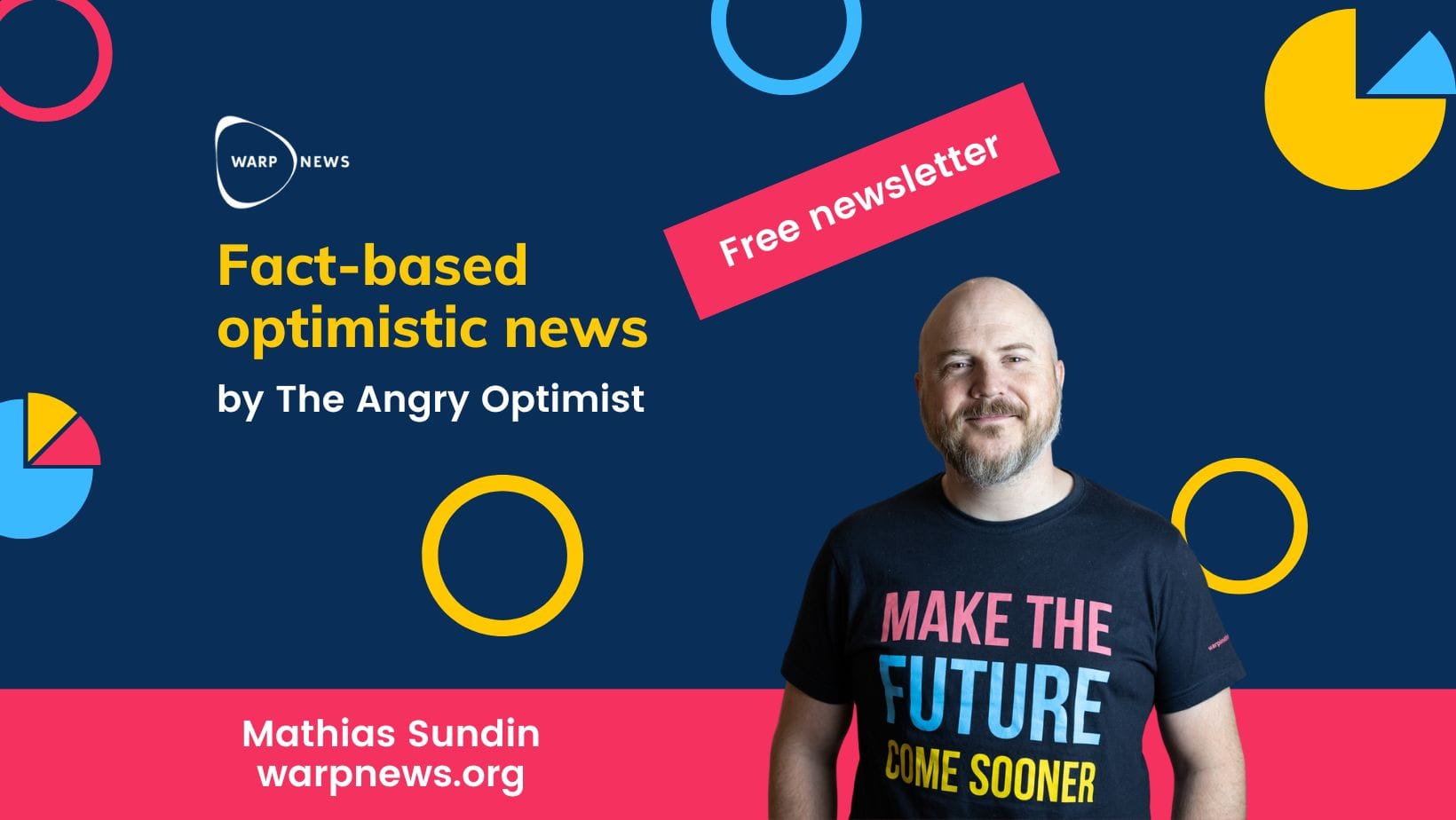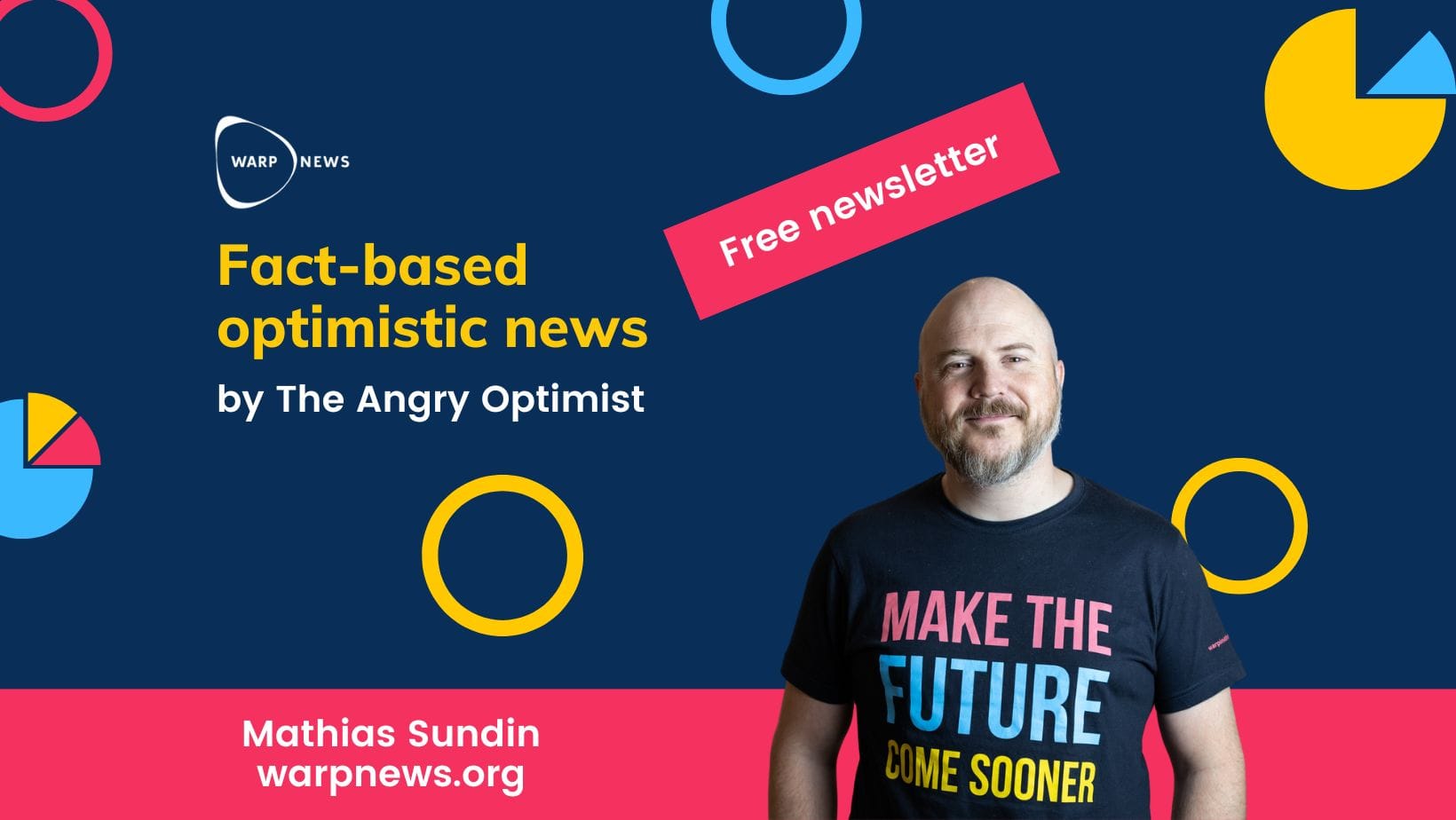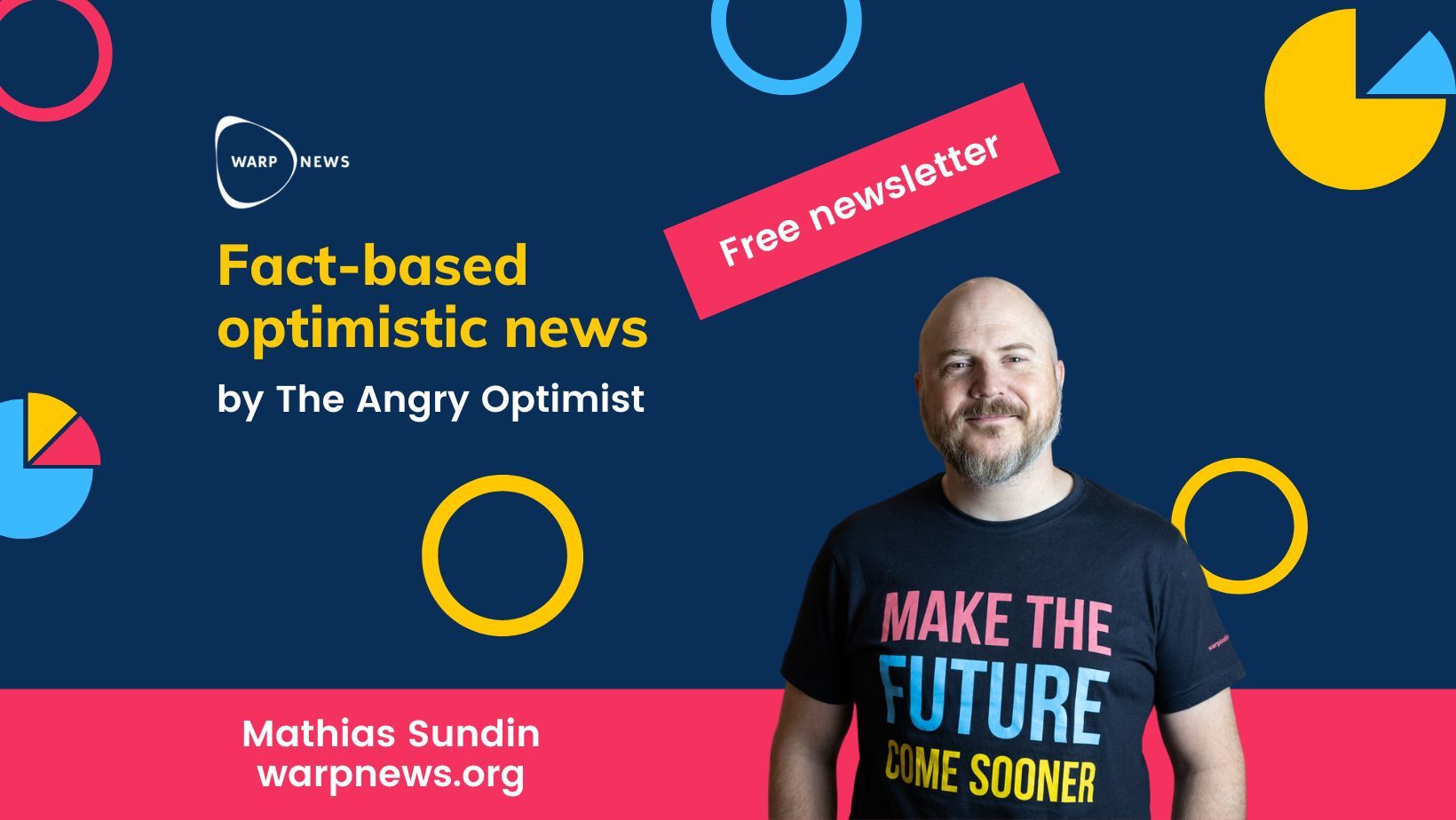
💡 Warp News #184
🐠 Untouched coral reef discovered in the Galápagos Islands. 🚗 First time: An EV is Europe's best-selling car. 💉 Hope in the fight against malaria: groundbreaking vaccines take center stage.
Share this story!
If someone forwarded this newsletter to you and you want to subscribe, here is where you do that. It's free and arrives once a week.
💡 Result of the investigation into the sixth mass extinction
Here is the result of the investigation you suggested, voted for, and financed.
 Warp NewsAnders Bolling
Warp NewsAnders Bolling
A brief background to refresh your memory:
- A journalistic reflex is to think: "That sounds too good to be true." But rarely, if ever, the opposite: "That sounds too bad to be true."
- That's why we wanted to do a "too bad to be true" investigation.
- Warp's community came up with topics, we chose three of these and let you vote. The winner, with 43 percent of the votes, was the sixth mass extinction.
- You also helped with the financing. We received about $1.000 from you, and The Progress Network contributed the other half.
- As our investigator, we chose Anders Bolling. He is an experienced and respected journalist, with over twenty years of experience as a reporter and editor, and knowledgeable about the subject.
Thank you so much for your participation and help in making this investigation happen! And big thanks to The Progress Network for partnering with us!
Anders has done a brilliant job. The article is a massive piece of 6,700 words, with a reading time of about half an hour. He has interviewed several interesting and knowledgeable people, including perhaps the world's most famous (and charming) pessimist, Paul Ehrlich.
Shouldn't we care about species extinction?
The purpose is not to diminish real problems. As Anders Bolling's text shows, there are serious problems with species extinction. These problems are bad enough and do not need to be exaggerated.
We need criticism to draw attention to problems like these. Without the criticism, we would have continued to exterminate animals. But when we start to change our behavior and begin to address the problem, this too must be acknowledged.
In that change, we can feel hope and confidence in the future that problems can actually be solved.
I have written a text about why we did this investigation.
 Warp NewsMathias Sundin
Warp NewsMathias Sundin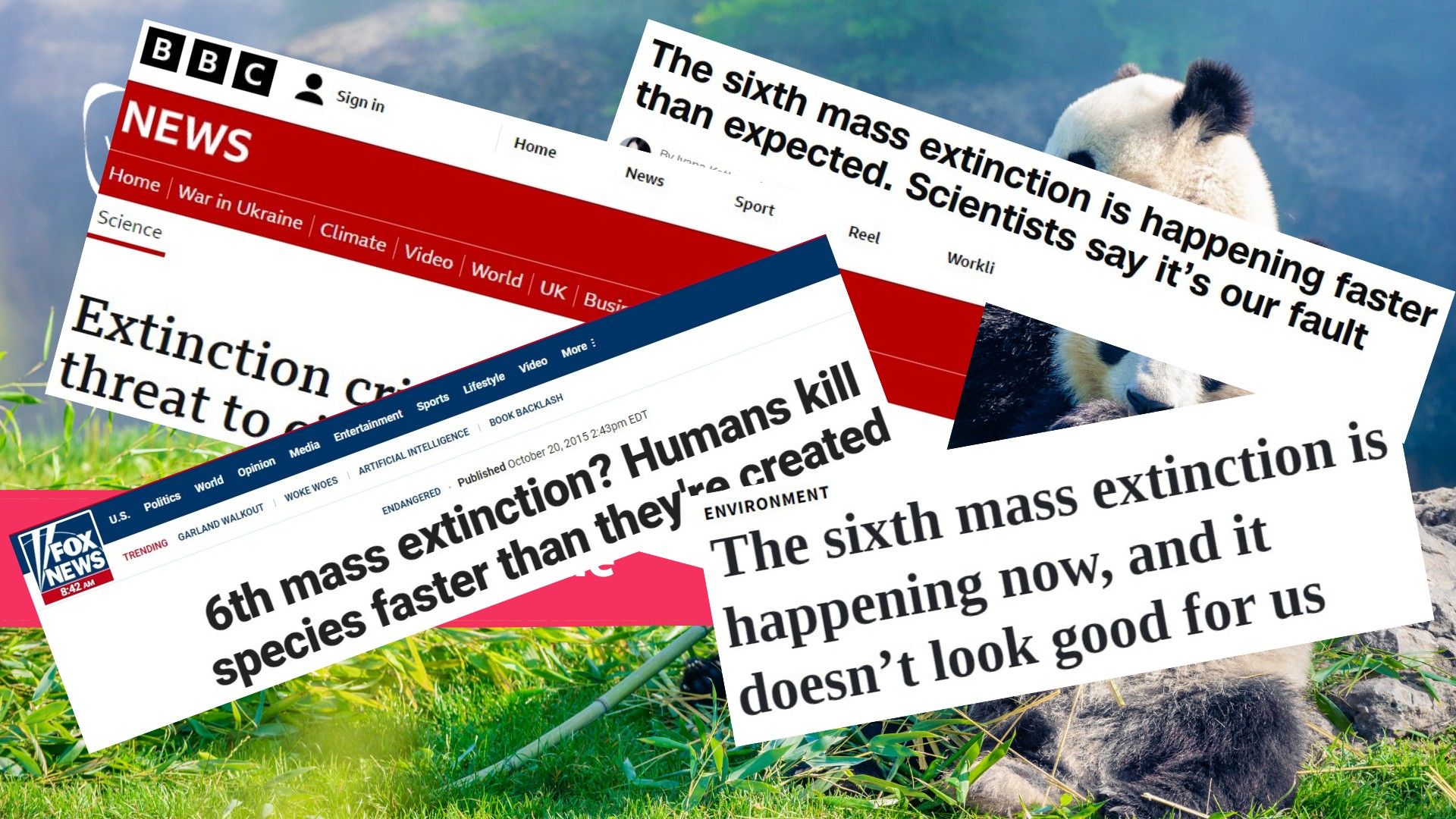
Mathias Sundin
The Angry Optimist
Other articles
💡 How Jeff Bezos used the Optimist's Edge
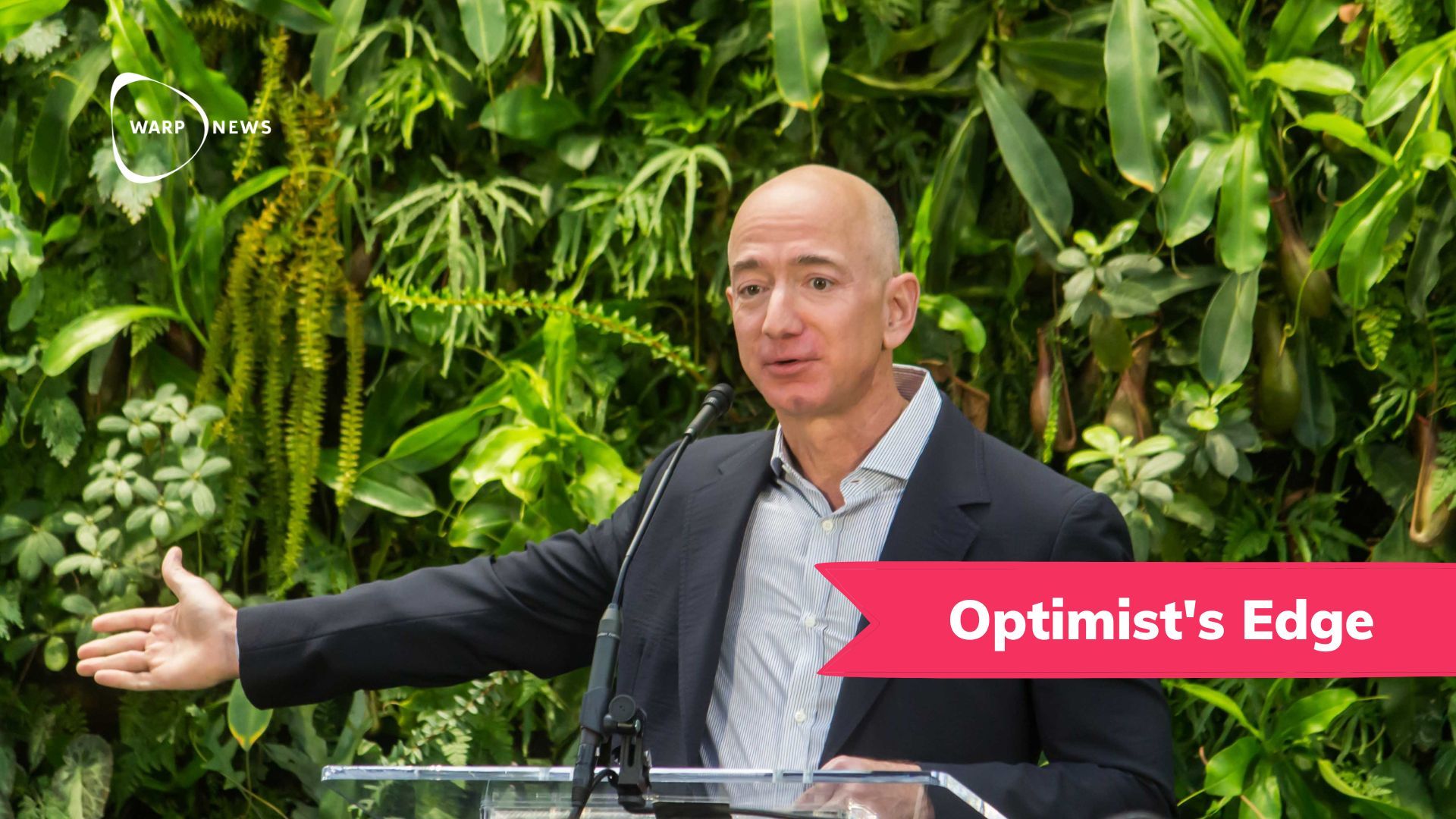
Something called the internet was growing at 2300 percent per year. But it was dismissed as a fad. Jeff Bezos used Optimist's Edge to make a life-changing decision. You can do that too.
💡 Fact-based optimistic news of the week
💉 Hope in the fight against malaria: groundbreaking vaccines take center stage
New vaccines are proving highly effective against malaria, and now there is hope that the end of the disease is within reach.
🚗 First time: An EV is Europe's best-selling car
During the first quarter, it happened! An electric car tops the list of new cars in Europe.
🐠 Untouched coral reef discovered in the Galápagos Islands
A previously unknown and untouched coral reef teeming with marine life has been discovered off the coast of Ecuador's Galápagos Islands.
🌞 The Angry Optimist on climate optimism at Stockholm Climate Week
VIDEO: Warp News' Mathias Sundin spoke about a tsunami of climate solutions at Stockholm Climate Week.
🧠 Sharpest image ever of a brain
64 billion times sharper: Research at Duke University has resulted in the sharpest image ever of a mouse brain through improved MRI technology. The new resolution can help researchers better understand how the brain changes through aging, diet, and diseases such as Alzheimer's.
By becoming a premium supporter, you help in the creation and sharing of fact-based optimistic news all over the world.
